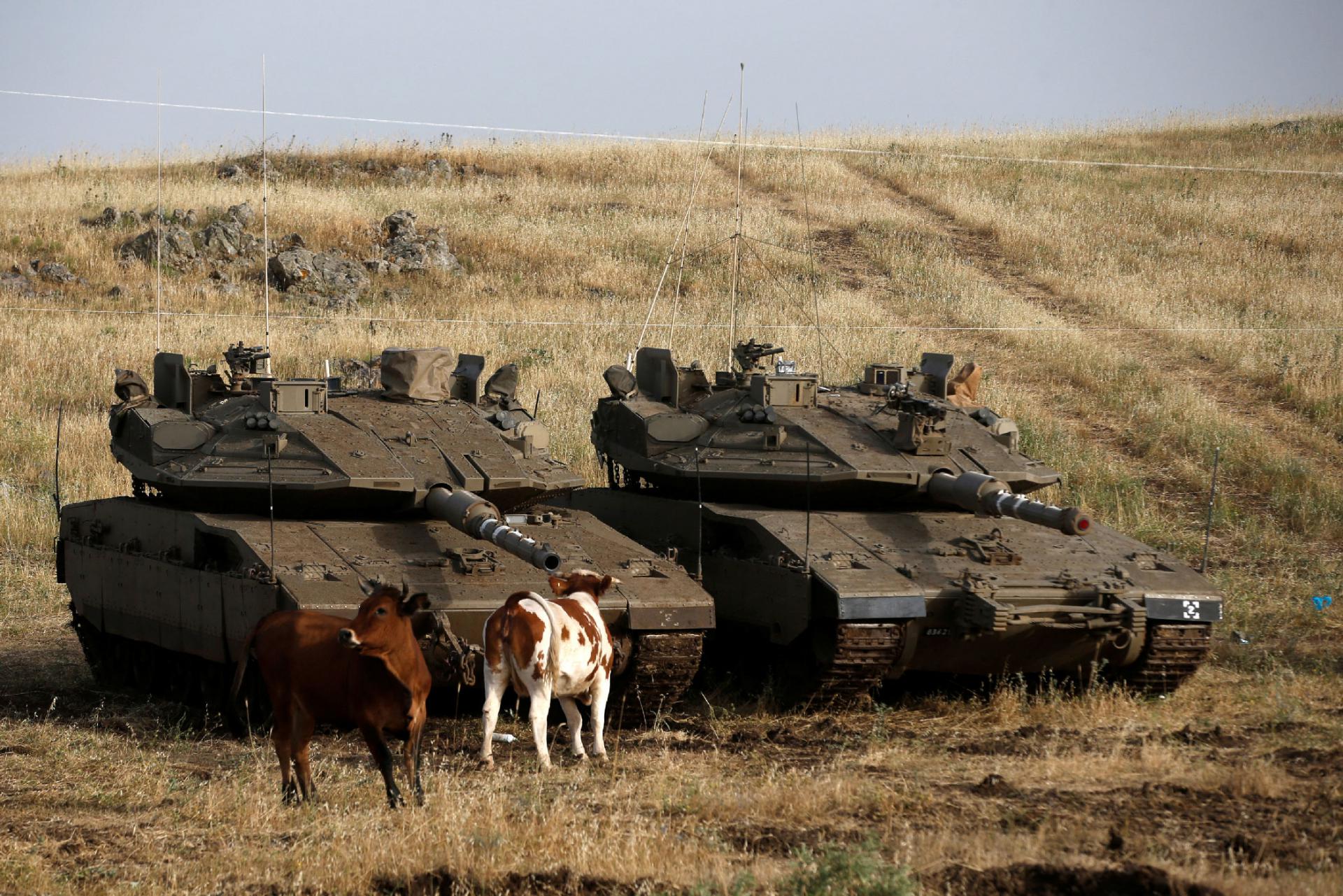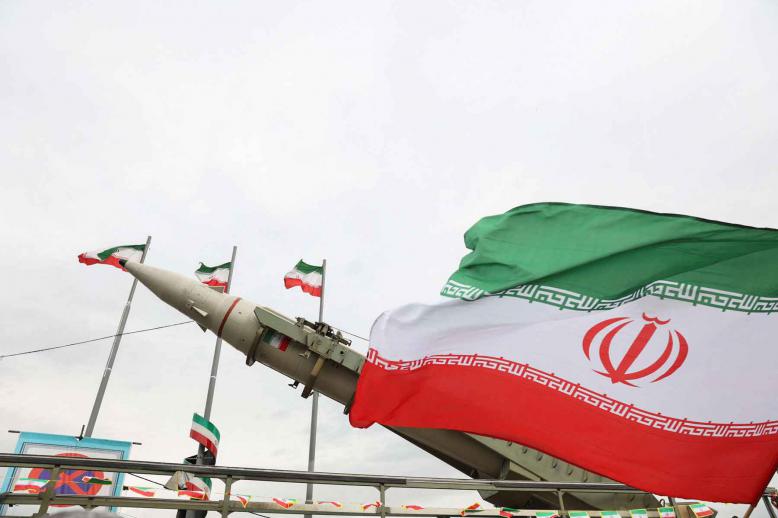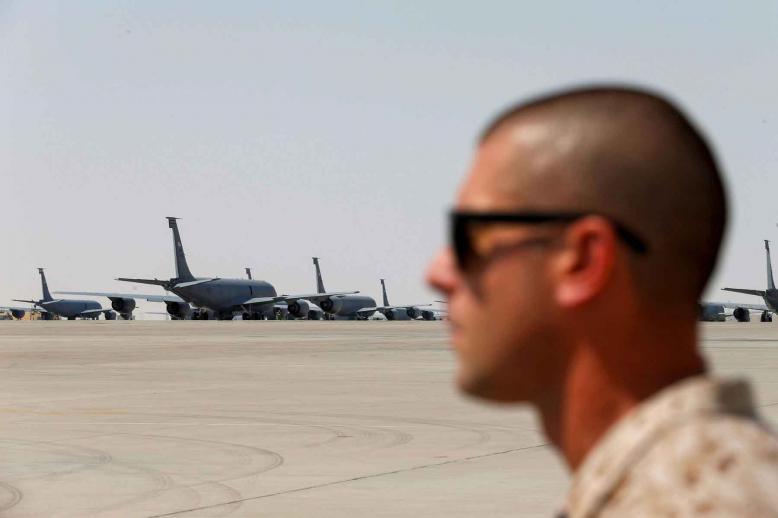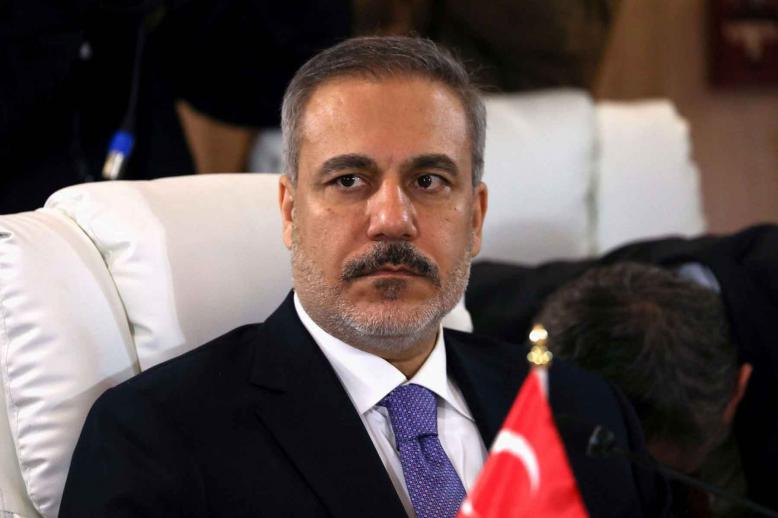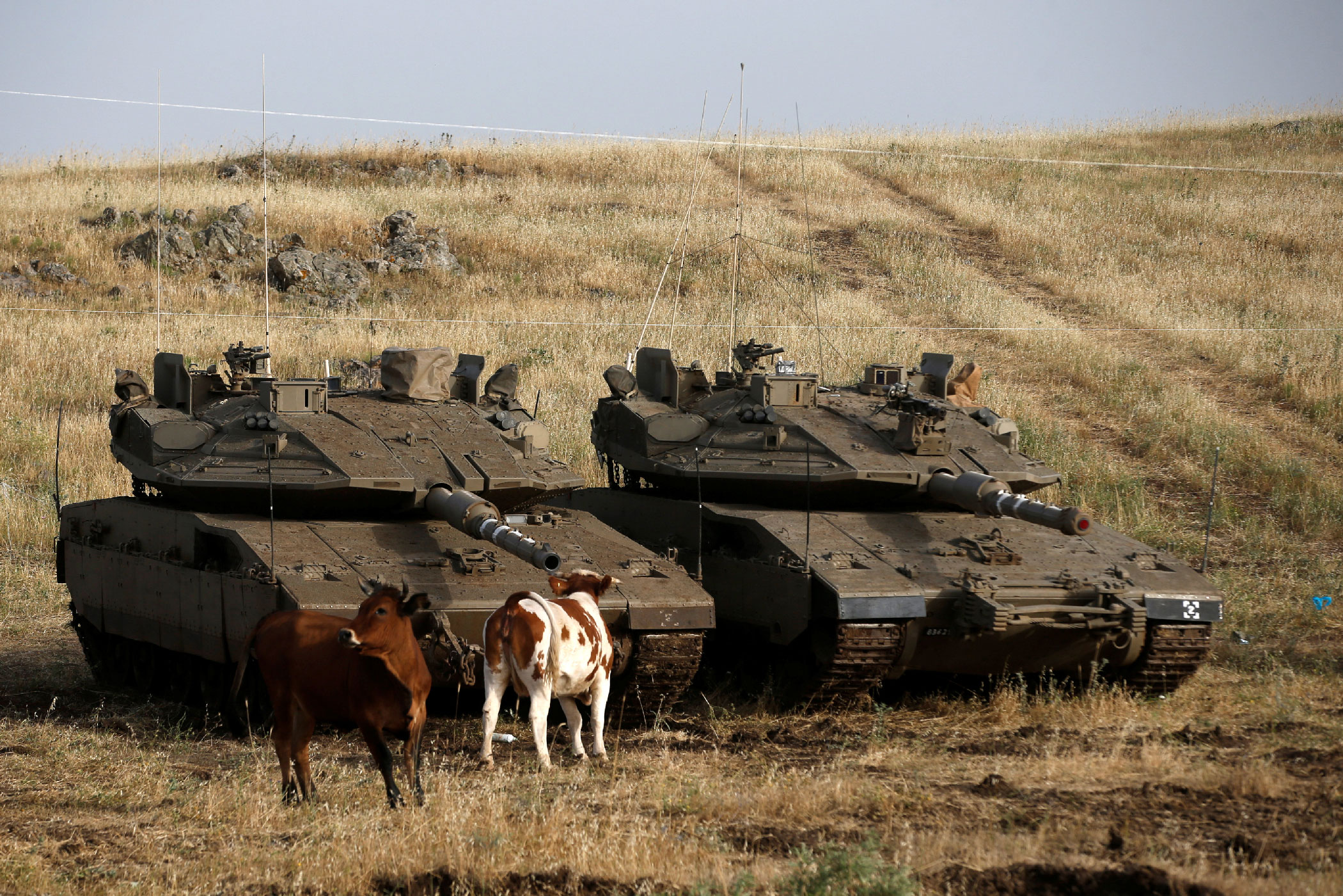Calls for restraint after flare-up in Syria
LONDON - Unprecedented clashes between Israel and Iran over Syria have sparked calls for restraint from world leaders worried about the risk of all-out war, even as both sides say they want to avoid a regional conflict.
All eyes will be on any fresh military activity Friday after Israel carried out widespread deadly raids against what it said were Iranian targets in Syria on Thursday in response to rocket fire towards its forces that it blamed on Iran.
The reported exchange of fire came after weeks of rising tensions and followed US President Donald Trump's decision Tuesday to withdraw from the landmark 2015 Iran nuclear deal, a move Israel had long sought.
The bombardment led to calls for calm from Russia, France, Germany and Britain and the European Union, while the United States put the blame squarely on Iran and stressed Israel's right to "self-defence".
Germany and Britain joined the United States in denouncing the rocket fire towards the Israel-occupied Golan Heights they also said was carried out by Iran, while France reiterated its "unwavering support for Israel's security".
Israeli Prime Minister Benjamin Netanyahu said Iran had "crossed a red line" and that the resulting bombardment against targets in Syria "was a consequence".
Iran's President Hassan Rouhani told German Chancellor Angela Merkel in a telephone call that he did not want "new tensions" in the Middle East.
Rouhani did not mention Israel's strikes in Syria, or those against the Israeli-occupied Golan Heights.
But the chairman of his country's parliamentary committee on foreign affairs, Allaeddine Boroujerdi, condemned the strikes, warning that "Israel has entered a dangerous game".
The Israeli raids in Syria, which a monitor said killed 23 fighters, were one of its largest military operations in recent years and the biggest such assault on Iranian targets, the Israeli military said.
"We hit nearly all the Iranian infrastructure in Syria," Defence Minister Avigdor Lieberman said.
"I hope we've finished this episode and everyone understood."
Israel carried out the raids after it said 20 rockets, either Fajr or Grad type, were fired from Syria at its forces in the Golan Heights at around midnight.
It blamed Iran's Quds force, adding that Israel's anti-missile system intercepted four while the rest did not land in its territory. There were no Israeli casualties.
Syrian state media, however, reported shelling from the occupied Golan Heights was actually the first to hit the town of Baath in Syrian territory overnight. A senior pro-regime military source in Syria and the Syrian Observatory for Human Rights, an independent monitor, also said Israel had fired first.
Iran flatly denied the Israeli version of events on Friday, saying Israel's attacks were carried out on false "pretexts".
"The repeated attacks by the Zionist regime on Syrian territory were carried out under pretexts that were invented by themselves and are without foundation," said foreign ministry spokesman Bahram Ghasemi, without offering further details.
Iranian analysts said Israel had struck first, and that any retaliation was the work of the Syrian military, not Iran.
"The Israelis want to make this into an Iran-Israel thing, but it isn't. Whatever happens in Syria happens under the command of the Syrians," said analyst Mohammad Marandi, who was part of Iran's negotiation team leading up to the nuclear deal.
Analysts say Israel feels it has a green light from Washington to move more aggressively against Iran's presence in Syria, particularly after Trump's withdrawal from the nuclear deal.
If the Israeli version of events is confirmed, it would be the first time Iran has sought to directly attack Israeli-controlled territory aside from an alleged attempted drone assault in February.
- 'New phase' -
The Observatory reported that dozens of rockets were fired from Syria towards the Israeli-occupied Golan, without saying who fired them.
A senior pro-regime military source in Syria confirmed the salvo of rockets, insisting Israel had fired first.
Later, in the early hours of the morning, explosions were heard in Damascus, while live images were broadcast on television showing projectiles above the capital and several missiles destroyed by anti-aircraft systems.
Syrian state media said Israeli missile strikes had hit military bases as well as an arms depot and a military radar installation, without specifying where.
The official SANA news agency said "dozens of missiles were shot down by anti-aircraft systems in Syrian airspace", acknowledging a number had reached their targets.
Israel's military later confirmed it had carried out the raids, saying some 70 military and intelligence targets had been struck and all of its aircraft had returned safely.
Syrian air defences, which fired dozens of times on Israeli jets, were also targeted, he said.
Syria said it was the Israeli strikes that marked a "new phase" of direct involvement in the country's seven-year conflict.
Its army said three people had been killed.
In a rare if not unprecedented move for an Arab country, Bahrain backed Israel's right to "defend itself" after the strikes.
- Russia hotline -
Bahrain is a close ally of Saudi Arabia and the two countries, whose foreign policies are often in lockstep, view Iran as the chief threat to the region.
Israel has long warned it will not accept Iran entrenching itself militarily in neighbouring Syria, where the Islamic republic is supporting President Bashar al-Assad's regime in the civil war.
It has been blamed for a series of recent strikes inside Syria that have killed Iranians, though it has not acknowledged those raids.
The Zionist state says it has conducted dozens of raids in Syria to stop what it says are advanced arms deliveries to Iran-backed Hezbollah, another key foe of Israel.
United Nations peacekeepers in Lebanon said Friday they were keeping a close eye on the southern border with Israel, but the area was "quiet" after the strikes in Syria.
The Israeli raids had prompted concern that Hezbollah could retaliate from its positions in southern Lebanon.
"We are monitoring the overall situation, but in relation to our area, the situation has been quiet," said Andrea Tenenti, spokesman for the UN Interim Force in Lebanon (UNIFIL).
Tenenti said that the UN force had not increased its patrols in the south, which number around 450 per day.
Iranian forces are deployed in Syria to back the regime of President Bashar al-Assad, whose fighters have also received a boost from Iraqi and other foreign militias as well as Hezbollah.
There was no immediate comment from Hezbollah on the latest Israeli strikes or how it might respond.
Israel and its US ally believe the Lebanese Shiite militia is amassing weapons on Lebanon's southern border in preparation for a new war, after a deadly conflict in 2006.
Set up in 1978, UNIFIL was beefed up after the 2006 war and tasked with guaranteeing a ceasefire and Israeli withdrawal from a demilitarised zone on the border.
UNIFIL now has 10,500 troops on the ground, monitoring the truce and helping Lebanese troops secure the borders.
Israel had been preparing itself for weeks for possible Iranian retaliation.
Trump's withdrawal from the nuclear deal has added to tensions and led to a new level of uncertainty over how Iran will respond.
At a rally in Indiana on Thursday Trump said he still wanted intrusive inspections of Iran's nuclear sites to continue despite his decision to withdraw from the pact.
European allies are scrambling to save the hard-fought deal but have found themselves increasingly critical of Washington's stance.
In an interview with the French daily Le Parisien, France's foreign minister condemned Washington's decision to reimpose sanctions on Iran as "unacceptable" move that unilaterally punished European companies for trade with Iran.


